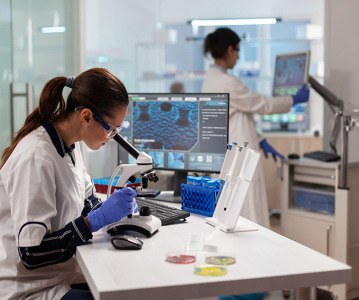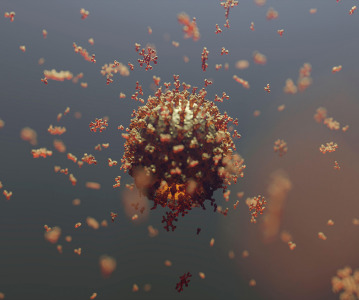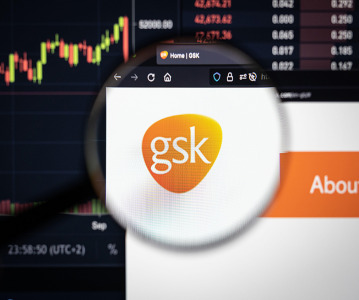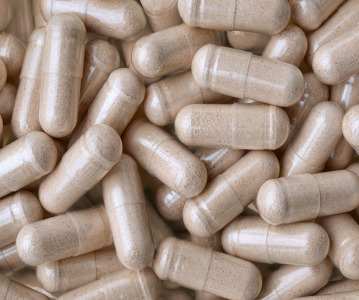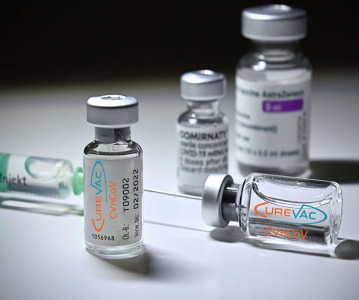Ukraine war expected to have long-lasting impact on clinical development

Many clinical trials have been put on hold or cancelled due to the war in Ukraine
The war in Ukraine has caused the delay and cancellation of “pivotal” clinical trials and will likely have long-lasting, global effects on clinical development, according to a new report by clinical tech services company Phesi.
The report focused on “pivotal” trials sponsored by pharmaceutical companies that represent the most critical global clinical development activities. As of March 16, 2022, there were 65,593 recruiting investigator sites globally in this category.
Of these, 2,911 (4.4%) sites were based in Ukraine and Russia, with most pharmaceutical trials currently in Phase III. Investigator sites in these countries are now on hold or have been cancelled, due to the ongoing conflict, related supply issues and financial sanctions. A further 1,738 (2.6%) sites in neighbouring Poland are also now at elevated risk.
The disruption to investigator sites will impact some research areas more than others. For example, more than 25% of all trials in schizophrenia take place in Ukraine and Russia, as well as a high proportion of gastrointestinal disease studies - including ulcerative colitis (14%) and Crohn’s disease (10%).
Sponsors will also experience varying degrees of disruption, with companies employing a global development strategy likely getting hit hardest. Companies with a large presence in the region include Eli Lilly (8% of their sites in Ukraine and Russia) and Merck (7%).
Phesi CEO Gen Li says redistributing investigator sites will be “painful, costly, and chaotic” for impacted companies.
“Whilst the war is happening in a single country, the impact for the clinical development industry will be global and long-lasting. Coming on top of the pandemic and with many countries still implementing lockdowns, it’s an increasingly difficult time for pharmaceutical companies,” he said.
In addition to the impact on local sites, there will also likely be a drop-off in terms of wider patient availability.
Phesi Chief Medical Officer Paul Chew notes that Ukraine, Russia and Poland contribute “significantly more patients on average, which exacerbates the impact beyond the number of sites in just these countries.”
He said: “Whilst the region will not see many trials returning in the short-term, we urge sponsors to retain their links with investigators and academics based there and keep the lines of communication open. They should also continue to fund sites, even those that are suspended.”
The report recommends that companies utilise data, including synthetic data, to get trials over the line. In some cases there may already be enough data available to close knowledge gaps and get treatments out to patients. It also encourages companies to consider conducting studies remotely and virtually.
In our role connecting international communities, CPHI/Pharmapack knows first-hand that progress and problem-solving comes from working together, not against one another. We stand firmly with the people of Ukraine, most notably our customers and partners, and their loved ones in the region, and with all who are championing harmony, unity and progress toward peace.
Related News
-
News Pharma Supply Chain People Moves
The latest appointments and promotions across the pharmaceutical supply chain. -
News Biosimilars save patients $11B annually, but barriers to adoption remain in US market
Biosimilars introduce competition into the biologics market, driving down prices and increasing patient access. -
News WHO recommends use of two monoclonal antibody treatments against Ebola
The health body recommended use of treatments by Regeneron and Ridgeback Bio -
News Sharp seeks greater foothold in Chinese market through ClinsChain partnership
Sharp hopes teaming up with clinical service provider ClinsChain will open the door to the Chinese market -
News GSK spins off consumer arm Haleon in biggest European listing for a decade
Haleon becomes the world’s biggest consumer health business, but debuted with a lower-than-expected valuation -
News SIGA reports $28M worth of new orders for monkeypox antiviral
The company has seen a sharp uptick in orders for its oral treatment as monkeypox cases rise globally -
News New CPHI report looks at CDMO outsourcing and partner selection
In The Future of Outsourcing - Strategies for Partner Selection, experts from across the pharma industry look at current trends impacting the contract services landscape and gauge the merits and drawbacks of the most common outsourcing strategies ... -
News CureVac files patent infringement lawsuit against BioNTech over mRNA technology
Company is seeking ‘fair compensation’ for alleged infringement of intellectual property rights relating to the use of mRNA tech to create the Pfizer-BioNTech COVID-19 vaccine
Position your company at the heart of the global Pharma industry with a CPHI Online membership
-
Your products and solutions visible to thousands of visitors within the largest Pharma marketplace
-
Generate high-quality, engaged leads for your business, all year round
-
Promote your business as the industry’s thought-leader by hosting your reports, brochures and videos within your profile
-
Your company’s profile boosted at all participating CPHI events
-
An easy-to-use platform with a detailed dashboard showing your leads and performance

